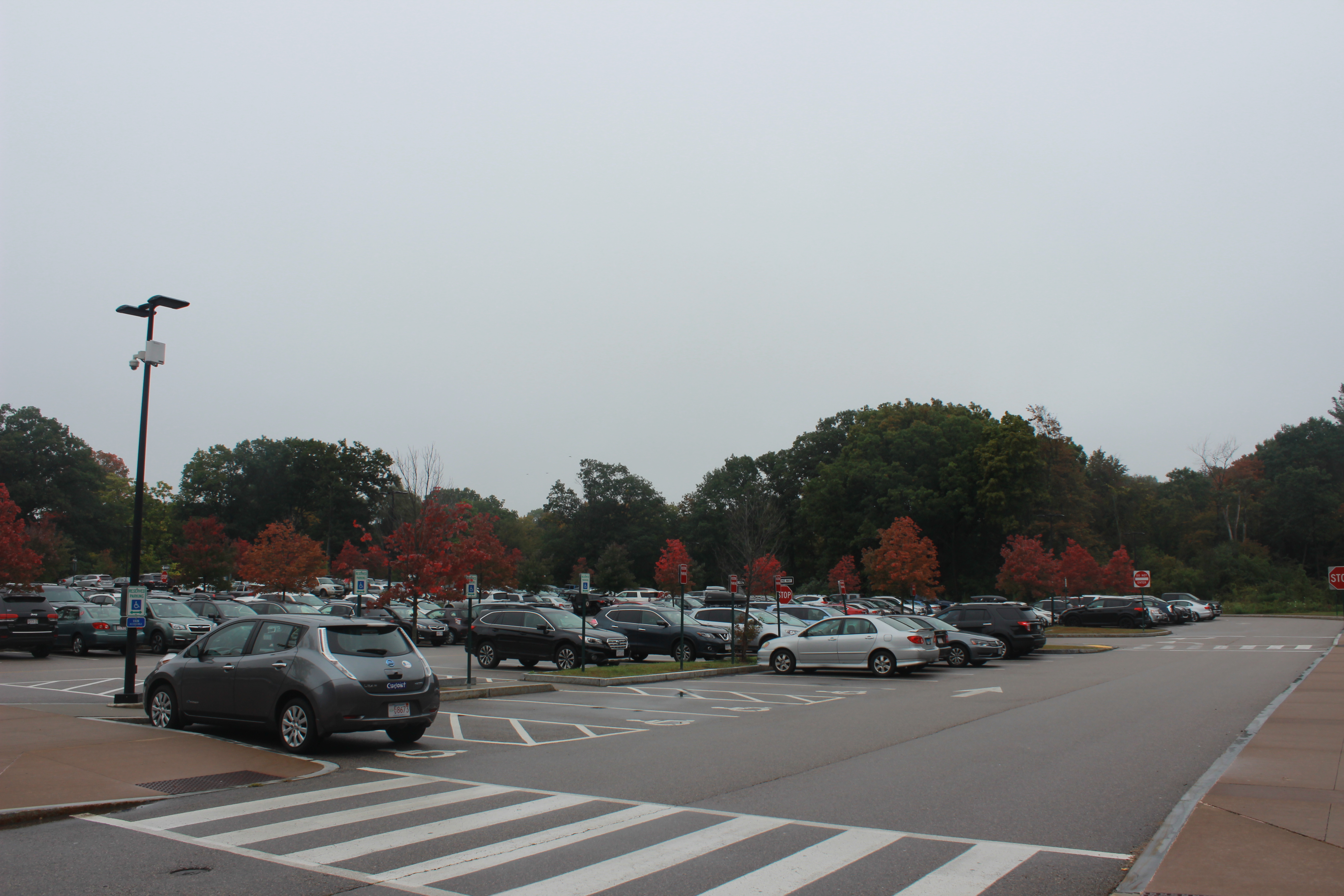For upperclassmen with cars, lack of parking is a common complaint, just like how little sleep you got or how hard your Psychology test was.
Parking may seem like a ‘Wellesley Problem’ at first glance — not enough spots because so many students have personal cars — but many students have voiced legitimate concerns regarding negative effects the lack of parking spots have on their health and academic performance.
“I definitely don’t sleep in as much as I would. I have a car, so I would drive myself later if I had a parking spot, but spaces are so expensive, I just don’t want to pay that much money. So I leave my house at 6:40 every morning even on days when I have a 9:40, just so I can park close to the school,” said Lucy Shribman ’19.
“I went up all the way on Washington to look for parking spaces, and I saw there weren’t any, so I turn[ed] back around to go the other way and see if there was an open space in the main parking lot,” said Matthew Haverty ’19. “There were none, and it took twenty minutes to get from the end of Washington to the start, and I had to park in 2-hour parking spot because there was nowhere else to park. I was thirty minutes late to class as a result.”
Haverty’s and Shribman’s experiences are fairly typical of seniors who drive to school. Some students arrive at school early to grab a good spot for the day, but those who come after are left scrounging for space, taking up valuable time and often making them late to class. Some end up having to park in temporary parking and accept the tickets. The price for a parking ticket at the high school is typically $25.
The students who arrive early for parking come extremely early, sacrificing precious sleep to avoid the difficulties of parking later.
According to a survey done last year by Student Congress, over 80 percent of students who drive to school find the lack of parking disrupts their sleep and education.
However, this problem continues because many students aren’t driving just because they have a car. The survey reported that ninety percent of students drove to school for either work, sports, or other activities and 61 percent replied that their parents/guardians are unable to pick them up from school.
The survey gives the average number of students who drive to school on a regular basis as 225, as of last year. For reference, there are fifty parking spaces in the main lot for students. There are twenty spaces on Paine students are allowed to park in, another thirteen in the track lot, and there are hypothetically ninety spaces on Washington Street plus twenty more in the tennis lot. This adds up to a maximum of 150 legal spaces.
Some students have complained to the school staff, but Assistant Principal Lynne Novogroski said, “The administration is powerless to address the parking issue.” The school cannot build new parking, and they cannot change town law.
Jonah Tobin ’19, a member of Student Congress who’s been working on the parking issue, said that the goal is to create forty to seventy new spots, but the process for creating new parking is dominated by Wellesley residents.
“Parking changes don’t happen through the school, they happen through the town,” said Tobin. “Requests are sent to the police commissioner, who takes it to the board of parking, which is made up of the police commissioner, the head of the Department of Public Works, and the officer in charge of parking, who then take it to the board of selectmen, which is a five-member committee which runs a lot of the town. They will either approve or deny any request to change parking.”
The two-hour and four-hour parking signs were implemented because residents who wanted to use the track but couldn’t park on their streets, or in the track lot, reported it to the board of parking. In response, the board of selectmen, put up the signs in order to maximize parking.
A good chance for new parking, Tobin says, is to send a letter to the board and to residents with Dr. Chisum’s signature and Student Congress President Bridget Ulian ’19’s signature describing the situation and asking for a meeting to discuss it.
The goal is to get 7:00 AM to 3:00 PM parking limits instead of the current two to four hour limits. “Almost every car, I would say ninety percent, is moved by 3:00 PM,” said Tobin.
Student Congress is hoping that this argument will convince residents to let students use their streets. Parking is an annoying issue, but it’s clearly not unsolvable. Cooperation and communication could greatly reduce the burden on students.

